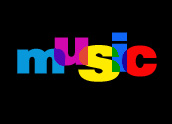
Musicians and artists have embraced the Internet as a tool that helps them create, promote and sell their work, according to a just-released study by the Pew Internet & American Life Project.
However, they are divided about the impact and importance of free file-sharing and other copyright issues.
The report — “Artists, Musicians and the Internet” — provides a current and comprehensive snapshot of artists’ and musicians’ opinions about the Internet and copyright in the digital age.
“We found artists were more likely to say the Internet had made it possible for them to make more money from their work than they were to say it had made it harder to protect their work online,” Pew research specialist Mary Madden told the E-Commerce Times.
“But both the general artist sample and the musician sample feel very strongly about having control over their work and think that unauthorized sharing of music and movie files online should be illegal,” Madden said.
Musical Methodology
The report assesses findings from three separate surveys: a telephone survey with self-identified artists, an online survey completed by more than 2,700 musicians and songwriters, and telephone surveys with the general public.
The questions in the musicians’ survey cover a broad range of topics related to the Internet: from basic usage, to sales, promotion, communication, fair use, copyright, sampling and file-sharing.
Key findings from the musicians’ survey:
- 87 percent of the musician respondents say they promote, advertise or display their music online, and 83 percent provide free samples or previews of their music on the Internet.
- 69 percent of the respondents say they sell their music online. Specifically, 63 percent say that they sell their music online someplace other than their own Web site; 56 percent sell CDs through online stores like Amazon.com or CDBaby; 28 percent sell downloadable files through digital stores like iTunes, and 18 percent sell their music someplace else online.
Indie Musicians Views Differ
For independent musicians, in particular, the study revealed this newfound ability to bypass traditional distribution outlets and geographic boundaries has been a watershed.
“These surveys show us that artist views are much more diverse than one might think by listening to the debates,” Madden said. “It’s clear that unauthorized file sharing and content control online do present very real concerns, but these challenges have not forced them into stagnancy.”
Madden said quite the contrary is true. According to her research, artists and musicians are finding innovative ways to work with the technology rather than reject it.
The Record Industry Association of America (RIAA) could not immediately be reached for comment, but its November 18 announcement of copyright infringement lawsuits against peer-to-peer network users on college campuses in four states speaks volumes.
Twenty-five of the RIAA lawsuits, on behalf of the major record companies, were against individuals using a university Internet connection to illegally distribute music files on unauthorized peer-to-peer services such as eDonkey, Limewire and Kazaa.
The lawsuits seem to be having some impact. November data from Ipsos-Insight showed the percentage of Americans who have paid a fee to download music from the Internet has climbed 150 percent since late 2003.
Divided over File-Sharing
The Pew study sharply echoed conflicting opinions within the ongoing public debate about file-sharing, with musicians reporting differing views on file-sharing services’ impact on artists. Pew concluded that there is no clear consensus regarding the effects of online file-sharing on artists:
- 35 percent of the online musician sample agree with the statement that file-sharing services are not bad for artists because they help promote and distribute an artist’s work.
- 23 percent agree with the statement that file-sharing services are bad for artists because they allow people to copy an artist’s work without permission or payment.
- 35 percent of those surveyed agree with both statements.
The Last Word?
FMC policy director Michael Bracy said we are at a critical point in history, where policy decisions can determine the future path of innovation.
“This report clarifies that artists and musicians are eagerly adapting new technologies as a way to interact directly with fans. We also know that music fans are embracing licensed digital download technologies,” Bracy explained.
He said as long as policymakers refrain from stifling innovation to “preserve the interests of some entrenched parties that control the major channels of promotion and distribution,” he is confident that this era will be viewed as the turning point in the effort to create a legitimate, fully licensed and wildly popular online music marketplace.
Pew’s Madden said the study is far from the last word on the subject, but it does help demonstrate that file-sharing and other issues related to the music industry are not black and white.
“The personal situation of the artist influences whether they are actively trying to get their work out to as many people as possible or if they really are concerned about having complete control over their work,” she said.
“Among the starving musicians that are sampled, they were more likely to see only the positive sides to file sharing and the successful artists were more likely to see only the negative side,” Madden said.












































Social Media
See all Social Media